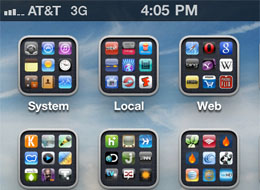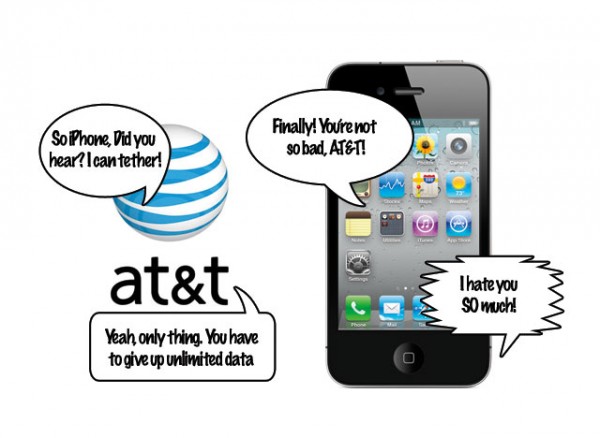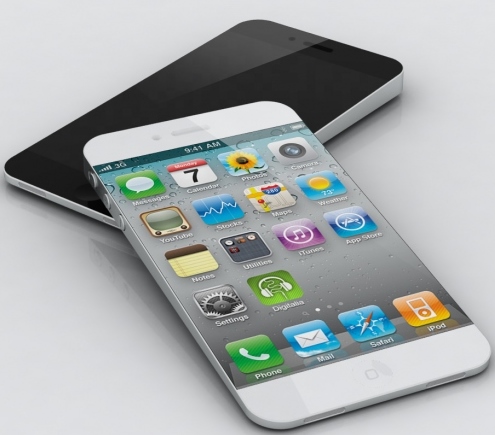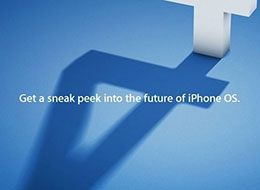AT&T’s profits rose by 26% in the last quarter to $4.01 billion. Driving that growth was 1.6 million new wireless subscribers. Guess which phone the majority of those new customers got?
If you guessed the iPhone, give yourself a round of applause. The Apple-built smartphone is selling like hotcakes, and AT&T, as the exclusive carrier of the device in the U.S., is reaping the profits.That’s why we were perplex by the quarterly report AT&T filed with the SEC earlier today. In it, AT&T claims that it doesn’t expect “to have a material negative impact” from the loss of any of its exclusive agreements.
Here’s the key paragraph from AT&T’s filing with the SEC. It’s long, so I’m going to break it up into chunks. I’ve bolded what I believe are the key quotes of the paragraph:
“We believe offering a wide variety of handsets reduces dependence on any single handset as these products evolve. In addition, offering a number of attractive handsets on an exclusive basis distinguishes us from our competitors. As these exclusivity arrangements end, we expect to continue to offer such handsets (based on historical industry practice), and we believe our service plan offerings will help to retain our customers by providing incentives not to move to a new carrier.”
AT&T touts its exclusive handsets as part of its competitive advantage. This is odd, because later on in the paragraph, AT&T admits that exclusivity arrangements won’t provide a competitive advantage over time — mostly because they tend to end.However, the wireless carrier makes it clear that it knows its exclusive arrangements will end, but asserts that people will stick with AT&T even, say, if the iPhone 4 were offered on the Verizon network. The company makes two arguments to support its assertion.
As noted above, more than 80 percent of our postpaid subscribers are on Family Talk Plans and business plans that would involve moving the whole group to a new carrier. Moreover, the vast majority of our postpaid subscribers (including Family Talk Plan users) are allowed to accumulate unused minutes (known as rollover minutes), a feature that is currently not offered by other major post-paid carriers in the United States, and users would lose these minutes if they switched carriers.
1) Most users are on family plans, meaning that people are locked into a contract with a group. They also have minutes accumulated with AT&T that they would lose if they switched to another carrier.
“As is common in the industry, most of our phones are designed to work only with our wireless technology, requiring customers who desire to move to a new carrier with a different technology to purchase a new device. In addition, many of our handsets would not work or would lose some functionality if they were used on another carrier’s network (even a carrier using GSM technology), requiring the customer to acquire another handset.”
2) You can’t bring your AT&T iPhone to Verizon; you’d have to buy a new one compatible with its CDMA network. AT&T’s phones operate on a GSM 3G network.
Although exclusivity arrangements are important to us, such arrangements may not provide a competitive advantage over time, as the industry continues to introduce new devices and services. Also, while the expiration of any of our current exclusivity arrangements could increase churn and reduce postpaid customer additions, we do not expect any such terminations to have a material negative impact on our Wireless segment income, consolidated operating margin or our cash from operations.
We understand AT&T’s arguments. It’s not as if a million people are going to suddenly switch to Verizon the day it gets the iPhone. Most people have family plans that would be costly to move. Plus, the prospect of buying an entirely new iPhone is unappealing, even if you sell off the old phone.
However, to claim that the loss of iPhone exclusivity wouldn’t have a negative impact on income though is just wishful thinking. While the loss of current customers wouldn’t be immediate, it would lose them, slowly but surely. Verizon’s smart marketing, incentives to switch and more reliable 3G network would attract customers as their AT&T contracts expired. AT&T’s exclusive arrangement to carry the Blackbery Torch won’t come close to making up for the loss.
That’s not where it would really hurt AT&T, though. It’s about losing out on new customers. If AT&T stays as the exclusive carrier of the iPhone for a few more years, you can bet that millions of Verizon, T-Mobile and Sprint customers would eventually cave and switch to the iPhone. If, on the other hand, Verizon got the device next year, the incentive to switch to AT&T would go up in a puff of smoke. The number of new wireless subscribers would drop like an iPad thrown out of an airplane.
We’ll give AT&T some credit: for the massive amount of mobile data growth AT&T has had to endure since the launch of the iPhone, the company’s network has, for the most part, not completely collapsed. But all of its efforts to upgrade its network won’t be enough when V-Day comes. The V stands for Verizon.
Source :mashable.com




